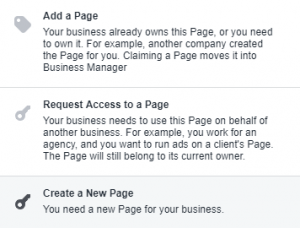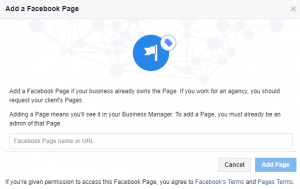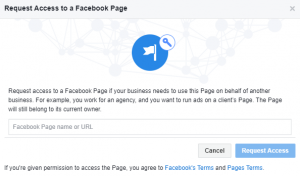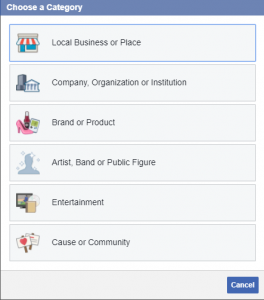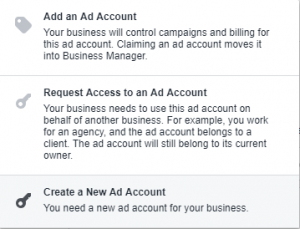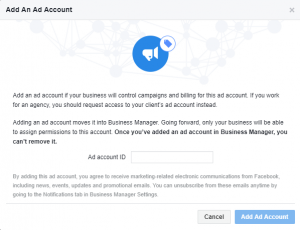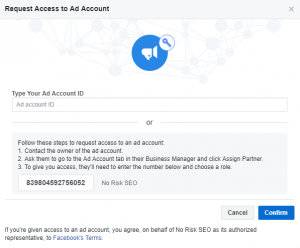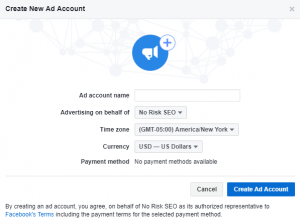Advertising On Facebook: A How To Guide
If done correctly, advertising on Facebook can be a phenomenal tool for businesses to reach extremely detailed audiences via social media. At the same time, Facebook advertising can also be an overwhelming experience if you don’t know what you’re doing.
I’m going to break down exactly what you need to do if you’re a new business setting up your Facebook Business Manager for the first time or if you’re an agency needing to link a client’s ads manager account. I’ll also touch on a few of my favorite marketing objectives and let you in on a couple of tips along the way.
Let’s start with the basics:
What is Facebook Business Manager?
Business Manager is a tool on Facebook designed to manage your Facebook business pages and ad accounts. Business Manager allows you manage pages as well as manage ads. From your Business Manager page, you can see who has access to your pages and ad accounts and add or remove permissions at the touch of a button.
If you’re working with an agency, you can share your Business Manager account so they can help you manage your Facebook ad campaigns and/or your Facebook posts.
What is the difference between an ad and a post?
Boosted posts are the most basic advertising you can do on Facebook. Let’s say you’re a bar owner and you’ve created a standard post on your businesses’ page, promoting a happy hour on Tuesday nights. Boosting your post to promote your business can show your post to more people in their newsfeed, regardless if they’ve “liked” your business yet or not. By boosting your post you’re able to reach a much larger audience, ideal for audience engagement goals such as post likes, comments or shares.
If you’re looking for a more customized advertising experience, Facebook Ads could work better for you. Ads are the most sophisticated way to advertise on Facebook and will require you to create a Facebook Ads Manager account. Facebook ads manager offers the most extensive marketing options available in order to reach your intended audience. Besides being the most advanced form of advertising, ads also allow you to add an optional call to action such as “learn more”, “sign up”, “contact us” or “shop now”, an added benefit not available on your ordinary Facebook post.
What type of ad should I be using?
That’s a great question, what’s your marketing objective? There are three main types of marketing objectives available on Facebook: Awareness, Consideration, and Conversion. Depending on what you’re trying to accomplish, depends on what type of marketing objective you should be running for your business.
Awareness, for example, is one of the better options for those new to Facebook advertising. Awareness ads can be either brand awareness or reach campaigns.
Brand awareness is perfect for increasing awareness of your brand by reaching people who are more likely to be interested in it. For example, you’re the general manager of “Rachel’s Bakery” serving the tastiest cupcakes in town, the only problem is nobody has ever heard of you! By using the brand awareness objective, you’re able to find fellow cupcake lovers in town that are likely to be interested in your bakery.
Reach campaigns are similar to brand awareness, in that they’re each part of the awareness marketing objective. Reach campaigns, however, shows your ad to the largest audience possible for your budget, perfect for promoting a grand opening or event where you want the most people possible to be aware of it.
If you’ve already built up a book of business and you’re simply looking to expand your audience, your best marketing objective may be “Consideration”. Consideration marketing objectives are the optimal ads to run if you’re looking to engage your audience.
There are currently six different types of consideration advertisements you can run; Traffic, Engagement, App Installs, Video Views, Lead Generation, and Messages. Rather than extensively breaking down each campaign type, I’ll touch on a few of the more popular objectives, Traffic, Engagement and Lead Generation.
Traffic campaigns are structured to send people to a particular destination on or off Facebook such as a website, app, or messenger conversation. Let’s say you’re the owner of “Justin’s Exotic Car Dealership” and you’re looking to promote the latest line of Lamborghinis on your lot. By using a traffic campaign you can send your audience on Facebook to a specific landing page on your website, such as a Lamborghini gallery page or a page that describes the features of the newest Lamborghini model available for purchase. Not only is sending traffic to a specific landing page exclusive to Lamborghinis important to tailor the interest of your audience but Facebook also takes relevancy into consideration, called a relevancy score (we’ll get into how to improve your relevancy score at a later time).
Engagement is similar to Traffic in that it’s sole purpose is to engage your audience, however, engagement campaigns keep your audience on Facebook rather than directing them to a website landing page. Engagement campaigns get more people to see and engage with your Facebook post or page, generating more comments, likes, event responses and offer claims from your audience.
Engagement is ideal for a business owner looking for increased activity on their Facebook.
For example, the owners of “Erik and Terrance’s Golf Emporium” are having a hard time building their audience on Facebook. In this case, Erik and Terrance should create an engagement campaign with a focus on page likes. The ad can encourage their audience to “like” or “follow” their Business Facebook page and by doing so receive a discount on their golf equipment. They owners are able to not only engage their audience but also build their book of business by increasing the number of followers on their Facebook Business page.
A Lead Generation campaigns sole purpose is to collect lead information from people interested in your business. Business owners are able to drive more sales leads, such as email addresses or phone numbers, from people interested in your brand or business. If your client “Wilbur’s Woodworkers Shop” wants to drive more sales, you can run a lead campaign to collect basic information from his audience on Facebook to build an email list of leads interested in wood work for their home.
Facebook also has Conversion campaigns customized to your product catalog and endless amounts of targeting features. To learn more about the different targeting options on Facebook, check out more blogs from No Risk SEO in the near future.
How do I make a Facebook page for my business?
If you’re a small business who doesn’t yet have a Facebook business page, get one. If you’re an agency with a client who doesn’t have a Facebook business page, sell them one. Facebook has more than one billion active users and advertising on Facebook allows you to simultaneously advertise on Instagrams 100 million user platform as well. However, I’m not here to sell you on the obvious, social media advertising works. I’m here to show you how to do it:
Step One: On your personal Facebook page select the Pages header on the left-hand side navigation.
Step Two: Click the Create a Page button and select the type of page you’re looking to create (i.e. Local Business or Place, Brand or Product)
Step Three: Fill out the fields (i.e. Business category, Business name, Business address, etc.)
Step Four: Click the Get Started button and Facebook will quite literally guide you step by step through the entire set up process. Skip steps if you wish because you can always go back to the Admin section and make changes but know they’re there for a reason.
How do I add a Facebook page to Business Manager?
Step One: Go to Business Manager Settings.
Step Two: Select “Pages” under the People and Assets tab.
Step Three: Click “Add New Page”
Step Four: Select one of the three options: “Claim a Page”, “Request Access to a Page” or “Create a New Page”
If your business already owns this page, you’ll need to click “Add a Page”. If an agency created the page for you, you’ll also need to click “Add a Page”, doing so moves it into Business Manager.
If you need to use a page on behalf of another business, you’ll need to click “Request Access to a Page”. For example, you work for an agency and you’re planning on running ads on a client’s page. By requesting access, you’ll have permissions to run ads on a client’s page but the page will still belong to the owner. If you choose this option, enter the Facebook page new, be sure to “like” the page first otherwise you’ll have to add manually add the URL.
Create a new page if you need a new page for your business or if your client doesn’t already have a business page on Facebook.
How do I add an advertising account to Business Manager?
Step One: Go to Business Manager Settings.
Step Two: Under the People and Assets tab, select “Ad Accounts”
Step Three: Select “Add New Accounts” on the right-hand side of the page.
Step Four: Select one of the three options: “Claim Ad Account”, “Request Access to an Ad Account” or “Create a New Ad Account”.
If you choose to Add an Add Account, your business will control campaigns and billing for this ad account. Claiming an ad account moves the account into your Business Manager.
Request Access to an Ad Account if your business needs to use this account on behalf of another business. Again, the ad account still belongs to its current owner but you’ll be able to use the account on their behalf.
Lastly, Create a New Ad Account if you need to create a new ad account for your business.
For more information on creating a Facebook Business page, detailed targeting or advertising on Facebook, feel free to contact No Risk SEO or email me at [email protected] and be sure to stay tuned for more tips, tricks, and how-to guides on everything marketing.
Everything You Need To Know About Advertising On Facebook: A How To Guide
Want To Advertise On Facebook But Don’t Know Where To Start? Check Out This How To Guide To Learn Everything You Need To Know About Advertising On Facebook


